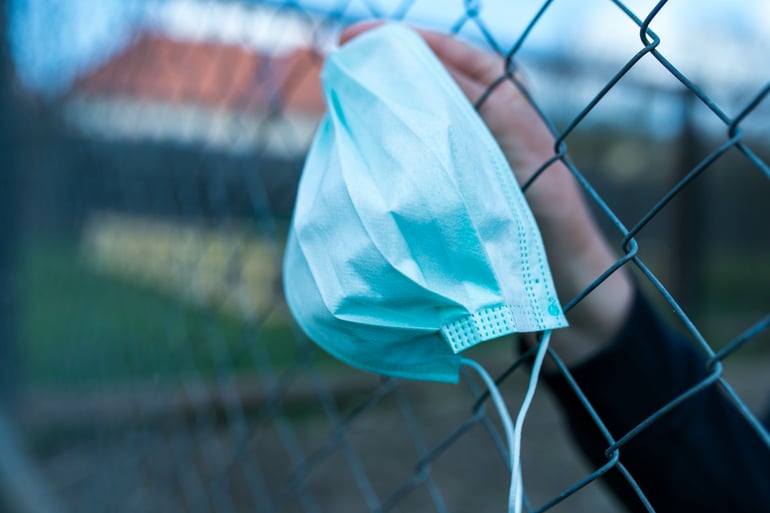
With October being the month of Mental Health Awareness Day, it is important to know the effects that the Covid-19 pandemic is having on juveniles’ mental health. A report by the Centers for Disease Control and Prevention states that between April through June, younger adults reported disproportionately worse mental health outcomes, increased substance use, and elevated suicidal ideation, than the same time period in 2019.
The link between mental health disorders and juvenile justice is very complex. Experts estimate that more than 16,000 children are held in juvenile detention centers in the U.S. At the same time, three out of four youth involved in juvenile court systems already suffer from mental health issues. And, with the Covid-19 pandemic causing additional distress, juveniles' mental health issues are consequently getting even worse.
How the Spread Raises Concern
Juvenile detention facilities have been a key concern with the spread of Covid-19. Not only does tight confinement with other juveniles increase the spread of germs...this isolation also leads to an increase in mental health issues. The anxiety of contracting the virus or of an outbreak in the facility has some juveniles struggling with the thought that they will be left behind.
An essential source for social and emotional support is visitation hours from friends and family. However, some facilities in the country have suspended facility visits due to Covid-19 restrictions on visitations, and this is just one example of how juvenile detainees are being disproportionately affected by mental health issues. The lack of face to face interaction can cause not only the juvenile, but the family, added distress. Having no contact, outside learning and activities, and limited to no counseling with social workers or probation officers is inevitably causing higher rates of mental health disorders and recidivism among these juveniles.
In an interview with NBC News, Vincent Schiraldi, co-director of the Justice Lab at Columbia University and former director of the juvenile corrections in Washington, D.C, said, "There's not a lot of great air circulation, and the only way to keep them from congregating is locking them in their cells, which you shouldn't do because isolation has been shown to cause extreme psychological distress.”
What Can Be Done?
It's more necessary than ever to address mental health issues in juvenile detention centers. It is vital to identify and support the mental health needs of juveniles sooner rather than later. Additional community involvement and interventions (such as Multisystemic Therapy) for troubled youth could help address various mental health conditions associated with the COVID-19 pandemic. To support additional involvement and interventions, the United States Health and Human Services Department has partnered with the Substance Abuse and Mental Health Services Administration to increase funding for these efforts and support mental health providers nationwide.
A Proven Alternative to Juvenile Detention
Multisystemic Therapy (MST) continues to guide troubled youth in a virtual environment during Covid-19. MST is delivering services through social distancing and telehealth methodologies such as telephone and/or video-based options. Most importantly, as an evidence-based practice, MST provides better outcomes for youth without the risk of an outbreak in a facility environment. “Families experiencing social isolation may be at particular risk for mental health problems and escalated domestic situations. These families need to be able to continue with MST and not be relegated to a lower level of service during this crisis,” said Keller Strother, Co-Founder of MST Services.
Multisystemic Therapy (MST) is an evidence-based program for at-risk youth and families. MST utilizes a built-in suite of services within the home, school, and community settings. Services include but are not limited to: social skills training, drug and alcohol intervention, mental health services, and peer management.
If you know of someone that would benefit from MST or you would like to start an MST program in your area, please click here.

